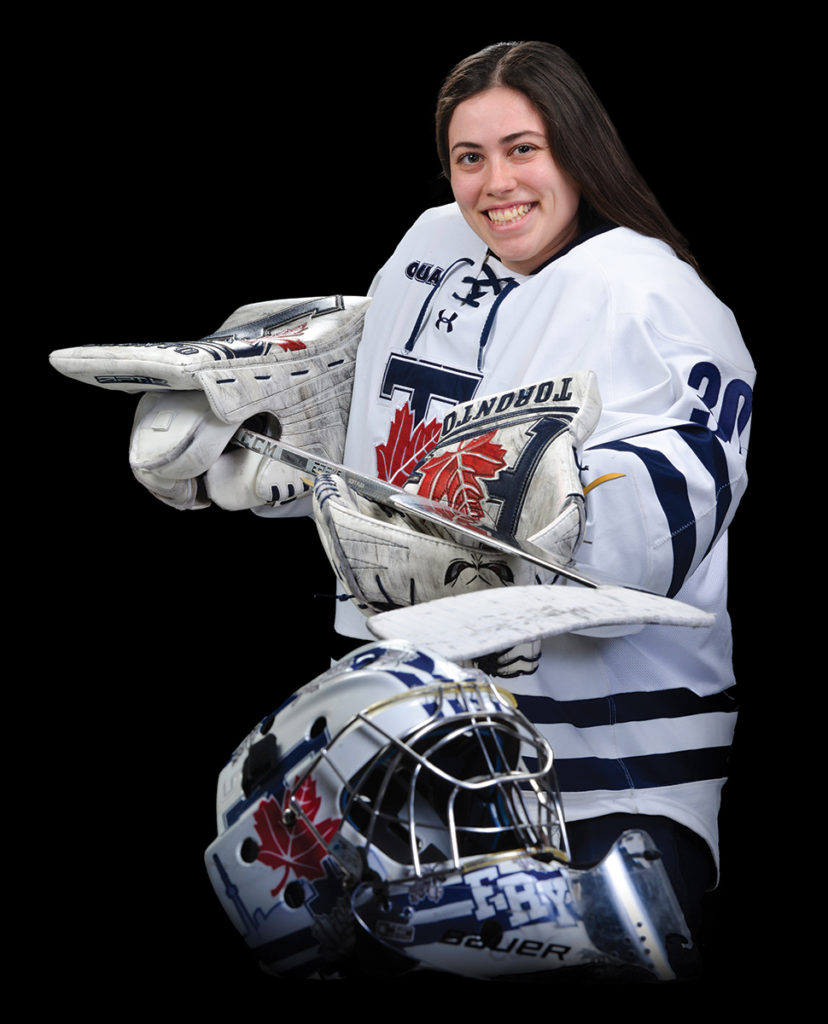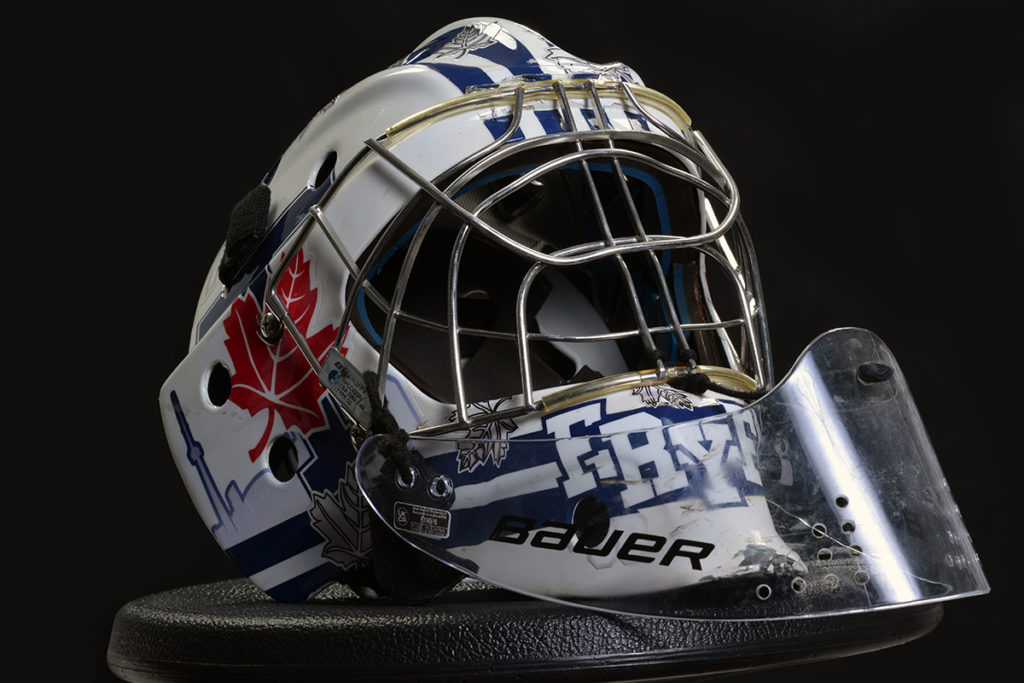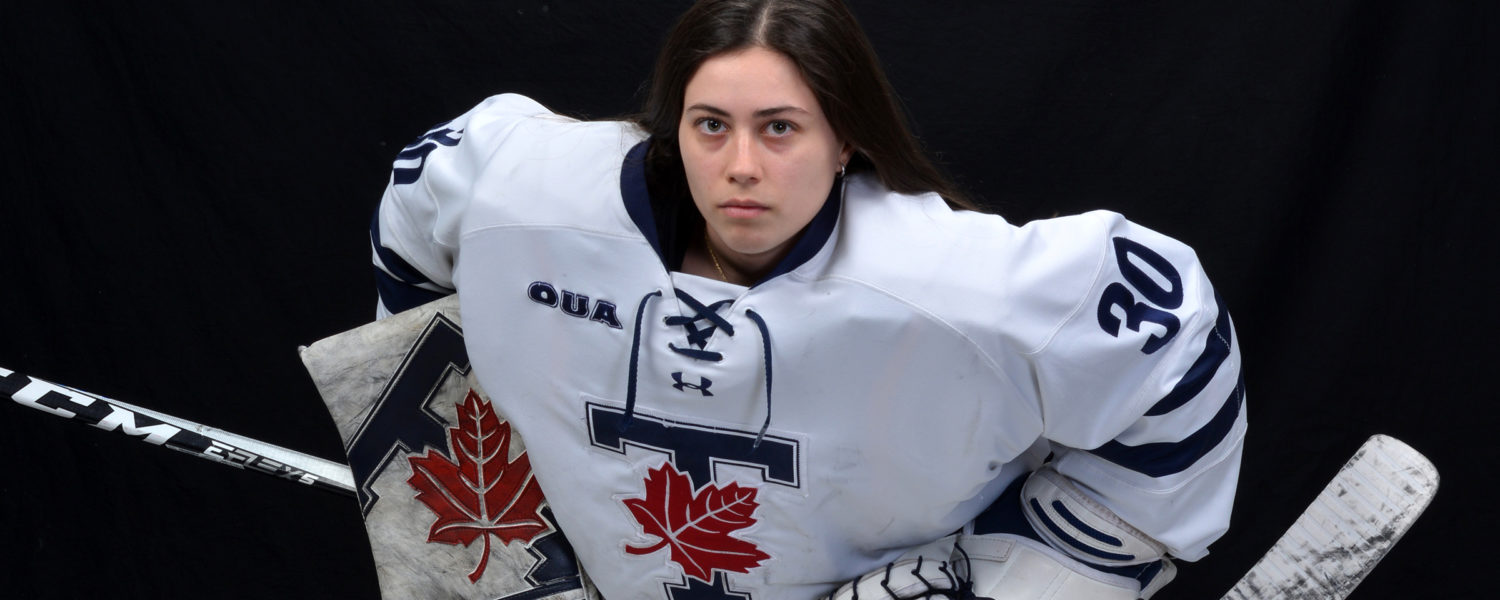Essex County Goaltender Gears Up To Go Pro
Story by Karen Tinsley
Photography by John Liviero
Before the successful launch of the Professional Women’s Hockey League (PWHL) in January, there were several fits and starts.
In 1999, the National Women’s Hockey League (NWHL) featured Ontario and Quebec teams. In 2007, the Canadian Women’s Hockey League (CWHL) largely replaced the NWHL; it ran for 12 seasons, lacked financial stability and in 2019.
After the CWHL dissolution, the Professional Women’s Hockey Players’ Association (PWHPA) partnered with corporate sponsors and NHL teams to generate support; in 2022, the PWHPA , Mark Walter Group (led by Los Angeles Dodgers owner Mark Walter) and BJK Enterprises (led by Billie Jean King) joined forces to launch the PWHL in 2023.
Comprised of six charter franchises (Boston Wicked, Minnesota Superior, Montreal Echo, New York Sound, Ottawa Alert, Toronto Torch).
The hiring of more than 100 PWHL staff sets this league apart from past women’s leagues. Unique to professional women’s hockey, the PWHL Players Association (PWHLPA) represents all players through an 8-year collective bargaining agreement. Former Toronto Maple Leafs GM Brian Burke is executive director of the players’ union.

On New Year’s Day 2024, the first match happened with Toronto hosting New York. The Canadian television audience of 2.9 million viewers was the largest for a sports entertainment broadcast that day (even surpassing the 2024 NHL Winter Classic).
Attendance records scored a hat trick: 8,000+ attended Ottawa’s first home game, 13,000+ in Minnesota and 18,000+ at the “Battle on Bay Street” at Toronto’s Scotiabank Arena (drawing the largest ever crowd for a women’s hockey game).
Two of the six teams share home ice with NHL teams: Minnesota plays all home games at the Minnesota Wild’s Xcel Energy Center (the largest-capacity venue in the league); New York plays some home games at the New York Islanders’ UBS Arena. One-off matches at Detroit’s Little Caesars Arena and Toronto’s Scotiabank Arena are also planned.
Games are broadcast nationally in Canada by the CBC, Radio-Canada, RDS and Sportsnet. Worldwide, games can be streamed on YouTube.
How far women’s hockey has come!
Ten years ago, 14-year-old Erica Fryer of Amherstburg told us, “I’m hoping hockey can be part of my life for a long time…I also hope to play goal for one of the women’s professional teams.”
Even then, Erica had already engaged a personal trainer. Fitness was a Fryer way of life: cycling with her dad, jogging with her younger sister, rollerblading, target practice.
But from the get-go, it was All About Hockey for Erica.
Several years later, she was known as one of the best netminders west of Toronto.
Currently studying Kinesiology while playing goal in the heart of Canada’s hockey metropolis at The University Of Toronto, the 23-year-old is gearing up to go pro. Her goal is to play overseas in the SDHL (Sweden’s professional league) for a year or so, then enter the PWHL draft.
For someone as talented, disciplined and passionate as Erica Fryer, this decision seems like destiny.
She can’t really explain where her passion for hockey originated.
“I love the rush I get when people cheer in the stands. It’s my time to step up and shine; I thrive under pressure. Plus, I have a ton of fun with my teammates. A big bunch of sisters, all loving what we do!”
“When I’m strapping on my gear, my heart still races; waiting for that first shot, adrenaline floods my body. It’s a huge responsibility playing goal; your entire team relies on you.”
How did she happen to become a goalie?
“I think everyone starts out as a player. The first time I played net, I volunteered. And I ended up getting a shutout! That was awesome enough, but I also loved that I got to be on ice for the entire game!”
What makes her a great athlete?
“My personality, mindset, and passion. I’m a pretty outgoing, happy person; I get along with everyone. I bring confidence and calm to my game. Because my teammates feel confident in me, they can focus on their own games. I care so much! I put everything I have into every game I play.”
When asked about the greatest challenge in women’s hockey today, Erica responds, “The game has come so far, even from when I started playing. Today there is so much more opportunity and exposure. Now there’s a real future!”
For inspiration, Erica looks to her mentor, Meghan Agosta (who last played for the Canadian Women’s Hockey League Montreal Stars; Agosta is also a multi-gold-and-silver Olympic medal recipient and was voted 2010 MVP of the Women’s Hockey Tournament).
“I’ve developed a rewarding friendship with her.”

Erica continues, “And even though I don’t know her personally, I follow Shannon Szabados (a Canadian PWHPA goalie and women’s national ice hockey team member); I like to model her style of play.”
From 2007 to 2013, Szabados played men’s university hockey in Alberta. Not only was Szabados the first female to play in the Alberta Junior Hockey League; she also recorded a shutout in her first game—just like Erica!
Erica gives back with her own mentoring and coaching: “I’m the goalie coach for Meghan Agosta’s hockey camp; I’ve also run a couple of camps on my own. And I coach a lot of goalies either one-on-one or with my longtime goalie coach Perry Wilson.”
Staying positive and motivated after a game loss can’t be easy, particularly for a goalie. But Erica focuses on the big picture.




Add comment